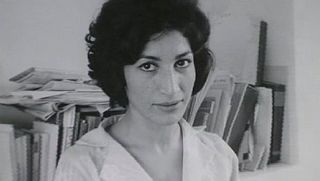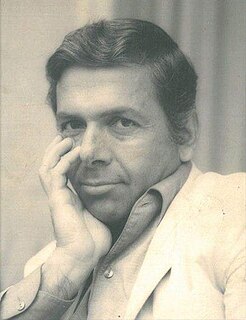Related Research Articles

Persian literature comprises oral compositions and written texts in the Persian language and is one of the world's oldest literatures. It spans over two-and-a-half millennia. Its sources have been within Greater Iran including present-day Iran, Iraq, Afghanistan, the Caucasus, and Turkey, regions of Central Asia and South Asia where the Persian language has historically been either the native or official language. For example, Rumi, one of the best-loved Persian poets, born in Balkh or Wakhsh, wrote in Persian and lived in Konya, at that time the capital of the Seljuks in Anatolia. The Ghaznavids conquered large territories in Central and South Asia and adopted Persian as their court language. There is thus Persian literature from Iran, Mesopotamia, Azerbaijan, the wider Caucasus, Turkey, Pakistan, Bangladesh, India, Tajikistan and other parts of Central Asia. Not all Persian literature is written in Persian, as some consider works written by ethnic Persians or Iranians in other languages, such as Greek and Arabic, to be included. At the same time, not all literature written in Persian is written by ethnic Persians or Iranians, as Turkic, Caucasian, and Indic poets and writers have also used the Persian language in the environment of Persianate cultures.

Forugh Farrokhzad was an influential Iranian poet and film director. She was a controversial modernist poet and an iconoclast, feminist author.Forugh Farrokhzad died at the age of 32 due to a car accident.

Sadegh Hedayat was an Iranian writer and translator. Best known for his novel The Blind Owl, he was one of the earliest Iranian writers to adopt literary modernism in their career.
Samad Behrangi was an Iranian teacher, social activist and critic, folklorist, translator, and short story writer of Azerbaijani descent. He is famous for his children's books, particularly The Little Black Fish. Influenced by predominantly leftist ideologies that were common among the intelligentsia of his era, which made him popular among the Organization of Iranian People's Fedai Guerrillas, his books typically portrayed the lives of the children of the urban poor and encouraged the individual to change his/ her circumstances by her own initiatives.

Ebrahim Golestan is an Iranian filmmaker and literary figure with a career spanning half a century. He has lived in Sussex, United Kingdom, since 1975.

Simin Dāneshvar was an Iranian academic, novelist, fiction writer and translator.

Touraj Daryaee is an Iranian Iranologist and historian. He currently works as the Maseeh Chair in Persian Studies and Culture and the director of the Dr. Samuel M. Jordan Center for Persian Studies at the University of California, Irvine.

Homa Katouzian is an economist, historian, sociologist and literary critic, with a special interest in Iranian studies. Katouzian's formal academic training was in economics and the social sciences but he concurrently continued his studies of Persian history and literature at a professional academic level. He began studying the life and works of the modern Persian writer, Sadeq Hedayat, and that of the Prime Minister of Iran in the early 1950s, Mohammad Mosaddeq, while still a faculty member in the department of economics at the University of Kent at Canterbury. Having taught economics at universities in Britain and other countries for eighteen years, he took voluntary retirement in 1986 to devote his entire time to Iranian studies. In recent years, he has been teaching and writing on classical Persian literature, in particular the 13th-century poet and writer, Sa‘di. Currently based at the University of Oxford, Katouzian is a member of the Faculty of Oriental Studies and the Roshan Institute Academic Visitor in Iranian Studies at St. Antony's College, where for thirteen years he edited the bimonthly Iranian Studies, the journal of the Association for Iranian Studies. He is editor of the International Journal of Persian Literature, and co-editor of Routledge's Iranian studies book series. He is also a former member of the editorial board of Comparative Studies of South Asia, Africa and the Middle East and Comparative Economic Studies.

Fereydoun Farrokhzad was a singer, actor, poet, TV and radio host, writer, humanitarian, and political opposition figure. He is best known for his variety TV show "Mikhak-e Noghrei" which introduced many artists such as Ebi, Leila Forouhar, Shohreh, Sattar and many more. He was the brother of the acclaimed Persian poets Forough Farrokhzad and Pooran Farrokhzad.
Karim Emami was an Iranian translator, editor, lexicographer, and literary critic.
In Zoroastrianism, Spənta Ārmaiti is one of the Amesha Spentas, the seven divine manifestations of Wisdom and Ahura Mazda. While older sources present the Amesha Spentas more as abstract entities, in later sources Spenta Armaiti is personified as a female divinity with connotations of harmony and devotion.

Sholeh Wolpé is an Iranian-American poet, playwright, and literary translator. She was born in Iran, and lived in Trinidad and England during her teenage years, before settling in the United States.

Farzaneh Milani is an Iranian-born American scholar, author, poet, translator, and educator. Milani teaches Persian literature and women's studies at the University of Virginia; and serves as the Chair of the Department of Middle Eastern and South Asian Languages and Cultures. She is also a poet, award-winning translator, and a recipient of the Carnegie Fellowship and the National Endowment for the Humanities. Milani's 1992 book Veils and Words: the Emerging Voices of Iranian Women Writers, has seen its sixteenth printing.
The Association for Iranian Studies (AIS), formerly the International Society for Iranian Studies (ISIS), is a private, non-profit academic organization founded in 1967 in the United States, though it now counts upwards of 1,000 members around the world. The current president is Naghmeh Sohrabi, Brandeis University.
Roxanne Varzi is an Iranian-born American cultural anthropologist, filmmaker, sound artist, writer, playwright, and educator. She is a full professor of anthropology and film and media studies at University of California, Irvine (UCI). Varzi is known for her various works in media, including books, film documentaries, sound performances, and theatrical plays.

Jasmin Darznik is the author of three books, The Bohemians, Song of a Captive Bird, a novel inspired by the life of Forugh Farrokhzad, Iran's notorious woman poet, and The Good Daughter: A Memoir of My Mother's Hidden Life, which became a New York Times bestseller. A New York Times Book Review "Editors' Choice" and a Los Angeles Times bestseller, Song of a Captive Bird was praised by The New York Times as a "complex and beautiful rendering of [a] vanished country and its scattered people; a reminder of the power and purpose of art; and an ode to female creativity under a patriarchy that repeatedly tries to snuff it out." The Bohemians was selected by Oprah Daily as one of the best historical novels of 2021. Darznik's books have been published in seventeen countries.
Deirdre Eberly Lashgari, was an American English literature educator, editor and translator, a specialist in ethnic and world literatures who translated classical and modern Iranian poetry into English. Her pioneering work and leading contributions changed the literary curriculum at Berkeley and other institutes and universities in the United States of America and has normalized the presence of women's voices and writings as part of the syllabus in such departments.
M.R. Ghanoonparvar is a Professor Emeritus of Persian and Comparative Literature at the faculty of Middle Eastern studies at the University of Texas, Austin, whose expertise includes the works of Simin Daneshvar, Sadeq Chubak, and Sadeq Hedayat.
Ali Gheissari is an Iranian historian and sociologist. He teaches history at the University of San Diego and has research interest in the intellectual history of modern Iran and in modern philosophy and social theory. He has been visiting professor of religious studies at Brown University, Iranian Studies at St. Antony's College, Oxford, and History of Modern Iran at the University of California, Irvine. He is known for his works on the intellectual history and politics of modern Iran. He is on the Editorial Board of Iran Studies book series published by Brill, and has served as the Editor-in-Chief of the journal Iranian Studies.
She'r-e Nimaa'i is a school of Modernist poetry in Iran that is derived from the literary theory of Nima Yooshij, a contemporary Iranian poet. Nima Yoshij revolutionized the stagnant atmosphere of Iranian poetry with the influential poem Afsaneh, which was the manifesto of She'r-e Nimaa'i. He consciously challenged all the foundations and structures of ancient Persian poetry. The nature of Mazandaran, social criticism, and humor are just a few examples of the themes that Nima Yoshij used in his poems. She'r-e Nimaa'i was the source of inspiration and growth of many great modern Iranian poets, including Sohrab Sepehri, Forough Farrokhzad, Mehdi Akhavan-Sales and Fereydoun Moshiri.
References
- 1 2 3 4 5 6 7 8 9 10 Miller, Jane Eldridge (2002). Who's Who in Contemporary Women's Writing. Psychology Press. p. 267. ISBN 978-0-415-15981-4.
- ↑ Lumley, Elizabeth (2007). Canadian Who's Who 2007. University of Toronto Press. p. 1071. ISBN 978-0-8020-4061-9.
- ↑ Foxhall, Emily (2015-03-13). "Support grows for UC Irvine students who voted against flag display". Los Angeles Times. Retrieved 2022-03-30.
- 1 2 3 4 "Nasrin Rahimieh, Professor, Comparative Literature". University of California, Irvine. Retrieved November 10, 2014.
- 1 2 "Nasrin Rahimieh, Women in Leadership". McMaster University. Retrieved November 10, 2014.
- ↑ "Statement of So Cal Students in Defense of UCI's Center for Persian Studies and Nasrin Rahimieh". Payvand.com. 2010-01-22. Retrieved 2022-03-30.
- ↑ "Alborz: An International Conference". Payvand.com. 2009-09-21. Retrieved 2022-03-30.